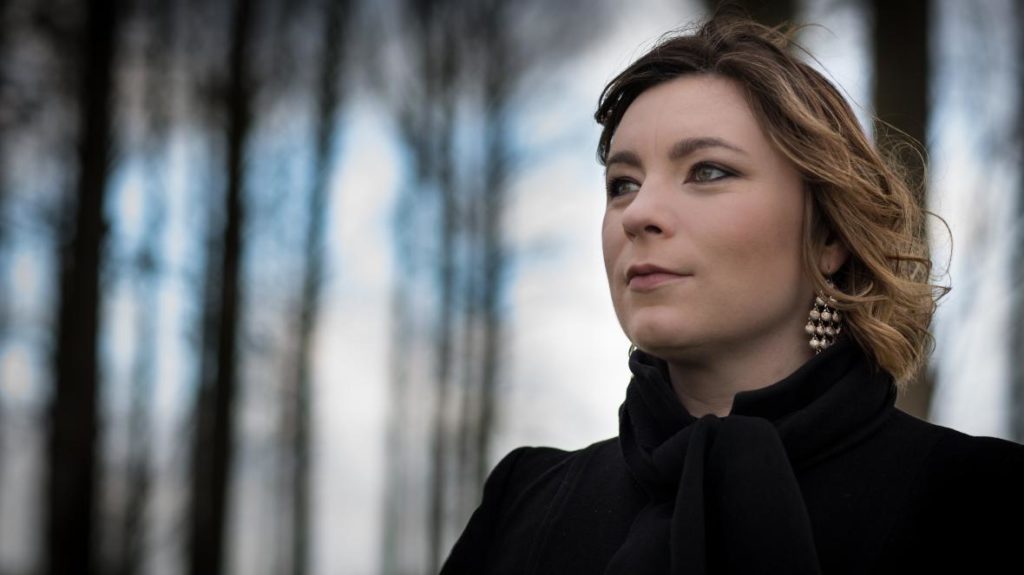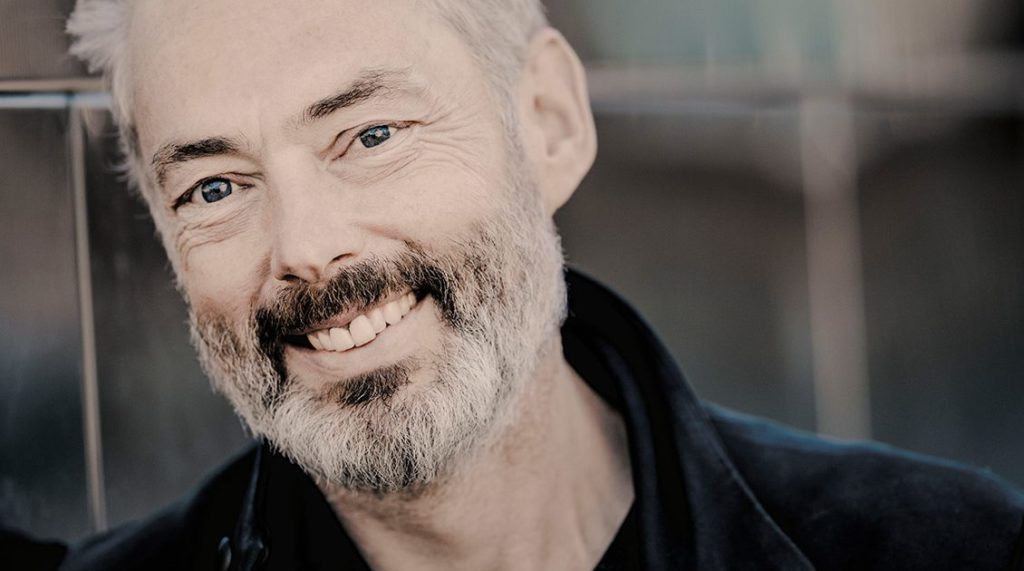
Leeds Lieder Festival, Day 2: Natalya Romaniw / Britten Canticles, Leeds Town Hall, 18/6/2021
A SOPRANO of the younger generation who has been making considerable waves, Natalya Romaniw has a powerful instrument at her disposal.
There is little doubt that she will soon be navigating the weightier corners of the repertoire, not excluding Wagner. That said, she has still to come fully to terms with the greater intimacy required for a song recital.
Her afternoon appearance with pianist Iain Burnside explored Strauss, Rimsky-Korsakov, Grieg and Rachmaninov. Much of it was extremely exciting, even thrilling. But she did not always control her tone enough to ensure that phrases emerged smoothly and all-of-a-piece. Frequently a single note, often at or near the top of a phrase, was too freely released, undermining the whole. This sometimes also went against the meaning of the text.
With this one reservation in mind, we can still look back on a memorable occasion. Among five Strauss songs, she found sheer rapture in Standchen (Serenade), where Burnside’s piano positively glittered. There was a lovely hushed ending to Morgen (Tomorrow), which was also beautifully spaced. This rivalled the serenity she had found in Ruhe, Meine Seele (Rest MySoul!).
She sang romances by both Rimsky and Rachmaninov in the original Russian, with apparent fluency. Both composers favoured heavy accompaniments, which in turn gave freer rein to Romaniw’s dramatic tendencies.
Softly The Spirit Flew, a Tolstoy poem favoured by several composers, felt streamlined in this Rimsky version, while in his Nymph the two performers conducted a polished dialogue.

Two Pushkin settings by Rachmaninov were outstanding. The narrative intensity of Arion was reflected in the piano’s postlude. Conjuring the pain of nostalgia in Do Not Sing To Me Romaniw captured exactly the regret implied by the falling semitones.
There was subtlety in The Answer, followed by another wonderful duet in Spring Waters, with the piano’s bubbling spring thaw matched by soprano optimism. Of four German lieder by Grieg, the upbeat Gruss (Greeting) had especially suited her voice, while The Discreet Nightingale expanded superbly, a sure-fire sign of Romaniw’s exceptional gifts.
Britten’s five Canticles were not intended as a set and are rarely heard that way. Still, it was good to have them together in a single evening. They rely, of course, on a tenor with the flexibility to lead them, having been written for Peter Pears. But only in this century have they begun to seem performable in any other style than his.
Mark Padmore has assumed the Pears mantle with style and panache (although on this occasion I could have wished that he had dressed a little more smartly, as his colleagues did).
Joseph Middleton was his perceptive pianist in the first four. Francis Quarles’s paraphrase of The Song Of Solomon in Canticle I has a silkiness that Britten’s velvet lines evoke explicitly; Padmore and Middleton felt it deeply, the voice floating on top of the piano’s featherbed.

Intensity deepened in Canticle II, Abraham And Isaac. It is easy to forget that the role of Isaac was written for Kathleen Ferrier, so often is it sung nowadays by a countertenor, as here, or even a boy treble.
Certainly Iestyn Davies played the sacrificial son to perfection and he and Padmore blended superbly as the Voice of God. Padmore was not averse to showing some anger at Abraham’s predicament and Middleton injected plenty of menace at that point.
Equally well integrated were tenor and horn at the end of Still Falls The Rain, Canticle III. Ben Goldscheider brought consummate control to the horn part – originally conceived for Dennis Brain – subsuming his earlier war-charged variations into an evocation of dawn with Padmore’s by-now rueful tenor. That was the only comfortable moment of this interpretation – which was exactly as it should be.
Iestyn Davies returned with baritone Peter Brathwaite for The Journey Of The Magi. Brathwaite was not daunted by the company he was keeping and gave a good account of himself. All three singers made distinctive characters of their kings while blending well and their journey ran smoothly, although more could have been made of T S Eliot’s often ironic poetry. But the plainsong melody emerged clearly in Middleton’s lucid accompaniment.
Finally, The Death Of Saint Narcissus, Canticle V, saw decisive, determined playing from the harpist Olivia Jageurs, with Padmore engaging fully with Eliot’s challenging lines. While inevitably there were inflexions reminiscent of Peter Pears, he had proved that there was room for other approaches. To a great extent the shackles of an earlier generation have been thrown aside by Padmore and his colleagues in this repertory.
Review by Martin Dreyer
